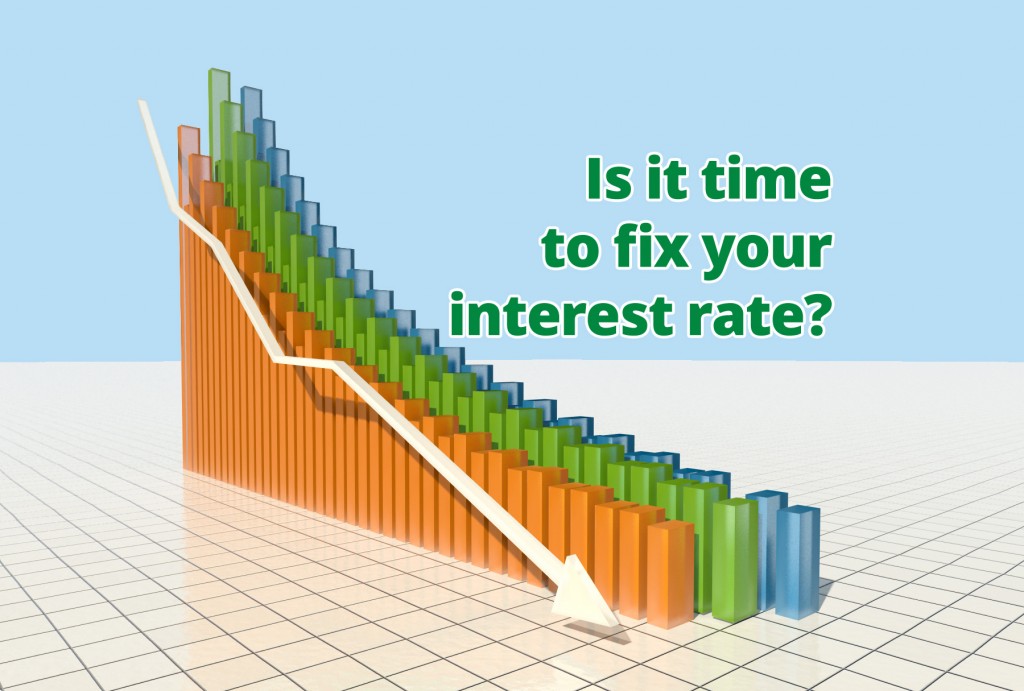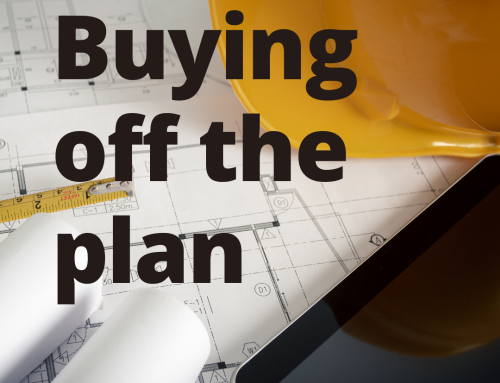 As your local mortgage broker, one of our most frequently asked questions is about timing the market to fix interest rates. We’re often asked “Should I fix now, or should I wait and see if interest rates get even lower?“. It might sound like a simple question, but giving you an answer is not as easy as you may think. And that’s not just because it’s difficult to predict what interest rates will do – it’s because you need to consider the question: “Is fixing my interest rate the right strategy for me?”
As your local mortgage broker, one of our most frequently asked questions is about timing the market to fix interest rates. We’re often asked “Should I fix now, or should I wait and see if interest rates get even lower?“. It might sound like a simple question, but giving you an answer is not as easy as you may think. And that’s not just because it’s difficult to predict what interest rates will do – it’s because you need to consider the question: “Is fixing my interest rate the right strategy for me?”
Fixed interest rate loans – the pros
Many people, particularly first home buyers, find it difficult to decide whether to fix their interest rate or go with a variable rate when they first take out their mortgage. They’re both good options, and deciding which one to take very much depends on your personal financial circumstances and future property investment goals. But let’s just look at fixed interest rate loans.
Fixed rate home loans are designed to help you lock in your interest rate for a set period of time – usually 1, 3 or 5 years. The two main advantages of fixing your mortgage interest rate are:
- Fixing your interest rate makes budgeting easier. By fixing your interest rate, you will know exactly what your mortgage repayments will be as long as your mortgage remains fixed. This is a distinct advantage for those on a tight budget.
- You are insulated from interest rate rises for the length of your fixed interest rate period. With a variable rate mortgage, your repayment amount could increase without notice if interest rates go up. If you have a fixed interest rate this cannot happen. When variable rates go up, you continue to pay the same amount for as long as your mortgage remains fixed.
Fixing your loan? What to be cautious of
Fixed interest rate home loans are usually no frills products that don’t come with any extras. Variable rate home loans usually come with extra features – like the capacity to make extra repayments, redraw facilities, credit cards and mortgage offset facilities, for example.
These variable loan features may have the capacity to save you money, and you should talk to us about how these savings might add up for you if you decide to choose a variable rate over a fixed interest rate home loan.
Additionally, fixed rate home loans can often charge you a slightly higher interest rate to start with than a variable rate home loan. Having said that, there are some very competitive fixed rate home loans around at the moment, but you still need to carefully weigh up how much you could save on a variable rate home loan and compare that to the cost of a fixed interest rate home loan.
Another disadvantage with fixed rate home loans is what happens if interest rates should fall. With a variable rate home loan, any drop in interest rates will reduce your home loan repayments. If you have a fixed rate home loan and interest rates fall, your interest rate remains at the higher level and your repayments will still stay the same. This can be very frustrating for some – particularly if your major reason for fixing your interest rate is to save money.
The final thing to consider with regard to fixed rate home loans is your plans for the future. Fixed rate loans usually carry a substantial break fee if you wish to change or pay off your mortgage before the end of your fixed rate term. That means you could be penalised if you need to sell your home for any reason, or if you want to refinance your home to access equity for another investment.
What are my alternatives?
What do you do if you want the flexibility and cost-savings of a variable rate home loan, but are worried about interest rate rises making your mortgage repayments unaffordable? In this situation, many people opt for splitting their home loan between a variable and fixed rate.
With this option, you may be able to arrange for 50% of your home loan to be at a fixed interest rate and the other 50% to be at a variable interest rate, for example. This option offers some protection against the risk of interest rate rises, whilst still giving you the capacity to make extra repayments and take advantage of other facilities that variable rate home loans have on offer.
So is now a good time to fix my interest rate?
This month, the Reserve Bank of Australia decided to cut interest rates for the second time this year. This has brought interest rates to new historical lows – we’re seeing some of the lowest interest rates on record. However, if you’re waiting for interest rates to hit absolute rock-bottom before you fix your home loan interest rate, there’s simply no way of telling if they will fall even further this year.
There’s also no way of telling how long it will be before interest rates go back up again. It’s important to remember that you will only be saving money by locking in a fixed rate if variable interest rates go up to a point above the fixed interest rate you’re paying, that is, if you have a fixed rate home loan at 4.50%, variable interest rates would have to go up above that level before you would see any saving. And it may be quite some time before that happens.
We recommend that you talk to us before you make the decision to fix, or not to fix. We’re here to help you choose the right home loan product to suit your current needs, your future aspirations and your personal financial circumstances and budget. Whether you decide to choose a fixed or variable rate home loan (or a combination of both), there are some excellent deals available on the market right now – just give us a call on 0437 498 800 to find out more today.





